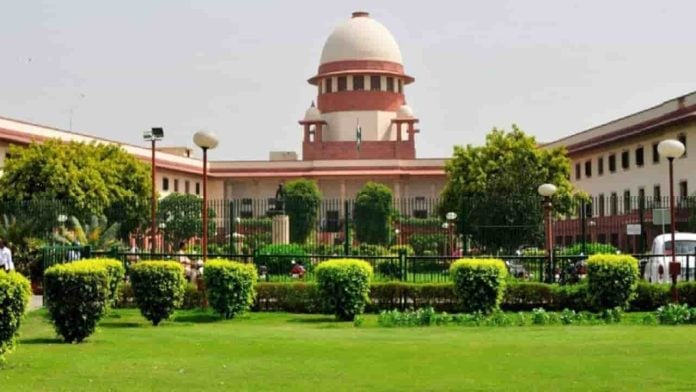The Supreme Court was questioned about its 2011 judgments that said having membership of a banned organisation cannot be termed as a crime, observing that there was no challenge to the law.
The bench, that has Justice MR Shah, Justice CT Ravikumar and Justice Sanjay Karol, has been looking to the Centre’s plea for reviewing two judgments of 2011, where provision of the Terrorist and Disruptive Activities (Prevention) Act (TADA) (now repealed) was read down to hold that mere membership of a banned organisation cannot incriminate a person unless till he is involved in some activity of violence.
Justice MR Shah said that there no question of reading down a law unless its validity is challenged or doubted?
This decisions came while two separate cases of bail and conviction under TADA were heard.
The Centre asked for the two-judge bench for seeking to views the Unlawful Activities (Prevention) Act (UAPA), which prescribes punishment for being a member of an unlawful association. In 2014, the matter was referred to a three-judge bench.
The solicitor general Tushar Mehta, who represented the Union government, has questioned the judgement of 2011 stating it to have failed to keep significant security of the nation intact.
Citing an example, the SGI sad that if Lashkar-e-Taiba is a banned organisation, a person cannot say he is just a member and has a right to remain a member.
He added that the right to form an association cannot be right, when it affects sovereignty and integrity of the country, restrictions will be reasonable. The law is preventive in nature and not just punitive.
Advocate Sanjay Parikh, appearing for the other side, said that the 2011 judgments were justified as a series of judgments by the Supreme Court since 1960s have held that there must be an overt act of incitement or violence before a person can be prosecuted.
The bench, said that the 2011 judgments had come while hearing criminal cases in which no party had questioned the legal validity of the TADA provision or the doctrine of associational guilty.
It also asked as to how could it go into the constitutional validity of a provision without a challenge to that law? Can it be said that merely because we are the Supreme Court, we can go into the validity of anything in any manner.
The court finally said that it would be reserving its judgment on Thursday after a 10-minute submission by Parikh, and asked the S-G to submit some judgments as to whether a court can read down a law when there is no such challenge before it.


